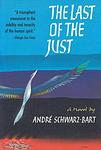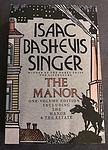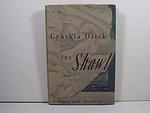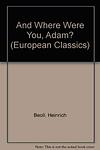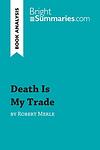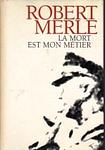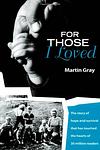The Greatest "Historical fiction, Poland" Books of All Time
Click to learn how this list is calculated.
This list represents a comprehensive and trusted collection of the greatest books. Developed through a specialized algorithm, it brings together 300 'best of' book lists to form a definitive guide to the world's most acclaimed books. For those interested in how these books are chosen, additional details can be found on the rankings page.
Genres
Historical fiction is a genre of literature that combines fictional stories with real historical events, settings, and characters. These books often take place in a specific time period and are based on research and factual information, but also include imaginative elements to create a compelling narrative. Historical fiction allows readers to experience the past in a unique and engaging way, while also providing insight into the social, cultural, and political issues of the time.
"Poland" as a category for books would encompass literature that is set in or about Poland, written by Polish authors, or explores Polish culture, history, and society. This category would include a wide range of genres, including historical fiction, memoirs, poetry, and non-fiction works that cover topics such as politics, art, and religion. Books in this category would provide readers with a deeper understanding of Poland's rich cultural heritage, complex history, and contemporary issues.
Countries
Date Range
Reading Statistics
Click the button below to see how many of these books you've read!
Download
If you're interested in downloading this list as a CSV file for use in a spreadsheet application, you can easily do so by clicking the button below. Please note that to ensure a manageable file size and faster download, the CSV will include details for only the first 500 books.
Download-
1. The Tin Drum by Günter Grass
The novel tells the story of Oskar Matzerath, a boy who decides on his third birthday that he will stop growing and remain a three-year-old forever. Oskar is gifted with a tin drum by his mother, which he uses to express his emotions and thoughts. Living in Danzig during the rise of Nazi Germany, Oskar's refusal to grow is a form of protest against the adult world. The book is a blend of magical realism and historical fiction, providing a unique perspective on the horrors of World War II and the post-war era in Germany.
-
2. Schindler's List by Thomas Keneally
The book tells the true story of a German businessman who saves more than a thousand Polish Jews during the Holocaust by employing them in his factories. The protagonist's transformation from a greedy high living war profiteer to a savior of lives forms the crux of the narrative. It offers a chilling yet inspiring account of the horrors of the Holocaust, human resilience, and the power of one individual to make a significant difference.
-
3. Fateless by Imre Kertész
"Fateless" is a harrowing account of a Hungarian Jewish boy's experiences in Nazi concentration camps during World War II. The protagonist is sent to Auschwitz, then Buchenwald, and finally to a factory in Zeitz, enduring brutal conditions and witnessing unimaginable horrors. Despite his experiences, he maintains a detached, almost indifferent perspective, focusing on the mundane aspects of life in the camps, which further highlights the absurdity and horror of the situation. The novel explores themes of identity, survival, and the arbitrary nature of fate.
-
4. Red Cavalry by Isaac Babel
The book is a collection of short stories that delve into the experiences of a Jewish political commissar serving with the Cossack regiment in the Soviet Red Army during the Polish-Soviet War of 1919-1921. Through a series of vivid, often brutal vignettes, the narrative explores the harsh realities of war, the cultural tensions between the Jewish intellectual and the Cossack soldiers, and the moral ambiguities faced by individuals caught in the turmoil of conflict. The stories are renowned for their stark, powerful prose and their unflinching examination of the human condition amidst the chaos of war.
-
5. The Painted Bird by Jerzy Kosinski
"The Painted Bird" is a dark and harrowing novel set in Eastern Europe during World War II. The story follows a young, unnamed boy of unknown ethnicity who is sent by his parents to live in a remote village for safety. However, he is instead subjected to brutal violence, abuse, and superstition by the superstitious peasants. The book explores themes of survival, human cruelty, and the loss of innocence in the face of war and hatred.
-
6. Fugitive Pieces by Anne Michaels
"Fugitive Pieces" is a novel that explores the life of a Holocaust survivor who is rescued as a young boy by a Greek geologist. The boy grows up to become a poet and translator, haunted by his traumatic past and the loss of his family. The story also includes the perspective of a young professor who is obsessed with the poet's work, digging into the poet's past to understand his own life. The novel delves into themes of memory, loss, and the power of language.
-
7. Jacob the Liar by Jurek Becker
Set during the Holocaust in a Jewish ghetto in Poland, the novel revolves around a man named Jacob who fabricates the news of the Russian Army's advancement to uplift the spirits of his fellow prisoners. However, as his lies gain traction, they become a beacon of hope for the desperate people in the ghetto, leading to unforeseen consequences. The book explores themes of hope, despair, and the power of words, ultimately questioning the morality of lying for a greater good.
-
8. Schindler's Ark by Thomas Keneally
The book is a historical novel based on the true story of a German industrialist who becomes an unlikely humanitarian amid the barbaric Nazi reign. When he witnesses the horrors inflicted upon the Jews, he is moved to save as many as he can by employing them in his factory. His actions, driven by courage and compassion, lead to the salvation of over a thousand Jewish workers from certain death in the Holocaust. The narrative explores themes of morality, survival, and the capacity for good in the face of overwhelming evil, as the protagonist navigates the complexities of war and the human spirit.
-
9. The Magician of Lublin by Isaac Bashevis Singer
This novel tells the story of Yasha Mazur, a talented and renowned 19th-century Jewish magician living in Poland. Yasha is a complex character, torn between his own desires and the expectations of his religious community. He leads a double life, juggling his career, his marriage, and his multiple affairs. As he grapples with his conflicting identities, Yasha is forced to confront his own moral failings and the consequences of his actions. His journey is one of self-discovery and redemption, offering a nuanced exploration of faith, love, and the human condition.
-
10. Satan In Goray by Isaac Bashevis Singer
Set in the 17th century, the novel explores the impact of false messianic fervor on the Jewish community of Goray, a small Polish town. After the devastating Chmielnicki massacres, the traumatized survivors find themselves drawn to the charismatic but ultimately destructive figure of Sabbatai Zevi, who claims to be the long-awaited Messiah. As the community becomes increasingly divided between believers and skeptics, the narrative delves into themes of faith, madness, and the desperate need for redemption, painting a vivid picture of a society on the brink of collapse under the weight of its own expectations and desires.
-
11. The Last Of The Just by André Schwarz-Bart
The book is a poignant and harrowing narrative that follows the tragic history of the Levy family over eight centuries, focusing on the lineage of the "Just Men" - thirty-six pure souls in each generation said to bear the sufferings of the world. The story culminates with the life of Ernie Levy, who, despite the encroaching horrors of the Holocaust, maintains an unwavering faith in human goodness. His journey through the ghettos and concentration camps of World War II Europe is a testament to the endurance of the human spirit in the face of unspeakable evil, as he upholds his family's legacy of compassion until his last breath.
-
12. The Manor by Isaac Bashevis Singer
"The Manor" depicts the complex interplay between Jews and Polish nobility in 19th century Poland. The narrative focuses on the lives of two Jewish families, the Kalinowskis and the Dembowskis, who are tied together by marriage. As they navigate the political and social changes of the time, the characters grapple with issues of faith, tradition, assimilation and the struggle for survival. The book provides a vivid portrayal of Jewish life in Poland during a period of significant change and upheaval.
-
13. Ashes and Diamonds by Jerzy Andrzejewski
Set at the end of World War II, the book explores the chaotic and morally complex time in Poland as the country transitions from war to peace. The narrative focuses on a young Home Army soldier tasked with assassinating a communist leader. As he grapples with his mission, he falls in love, further complicating his loyalties and convictions. The story provides a deep examination of the personal and political turmoil experienced during this historical period.
-
14. The Shawl by Cynthia Ozick
"The Shawl" is a heartbreaking tale that follows the life of Rosa, a Holocaust survivor, who struggles with the traumatic memories of her past. The narrative is divided into two parts, the first set in a Nazi concentration camp where Rosa's baby daughter is brutally killed, and the second part set in Florida, decades later, where Rosa, now an old woman, still grapples with her painful past. The shawl in the story is a symbol of Rosa's lost daughter and her enduring grief.
-
15. The Manor, The Estate, The Family Moskat by Isaac Bashevis Singer
The book is a sweeping saga that explores the multigenerational story of a Jewish family living in Poland from the late 19th century through the eve of World War II. It delves into the lives, loves, and losses of the family members as they navigate the changing social and political landscape. The narrative captures the tension between tradition and modernity, the struggle for survival amidst anti-Semitism, and the impact of historical events on personal identities and destinies. Through vivid characterizations and rich detail, the novel paints a portrait of a community and a way of life on the brink of profound change.
-
16. Ashes by Stefan Zeromski
This novel is a poignant exploration of the Polish struggle for independence in the late 19th and early 20th centuries, focusing on the life and experiences of its protagonist, a Polish aristocrat. Set against the backdrop of the partitioned Poland, the narrative delves into themes of love, loyalty, and the quest for national identity. The protagonist's journey is marked by personal loss and the harsh realities of a country under foreign domination, reflecting the broader socio-political turmoil of the era. Through its vivid portrayal of historical events and emotional depth, the novel offers a compelling insight into the resilience of the human spirit and the complex tapestry of Polish history.
-
17. The Peasants by Władysław Reymont
The book is a monumental narrative that delves into the lives, traditions, and struggles of the rural population in Poland at the turn of the 20th century. Through vivid and detailed storytelling, it portrays the seasonal rhythms that dictate the peasants' work and celebrations, their relationship with nature and the land, and the social dynamics within their community. The narrative not only offers a richly textured depiction of peasant life but also critically examines the impact of modernity and social change on traditional ways of life. Through its intricate character studies and the depiction of the universal themes of love, jealousy, ambition, and conflict, the novel presents a comprehensive and empathetic portrayal of the human condition within a specific cultural and historical context.
-
18. The Beautiful Mrs. Seidenman by Andrzej Szczypiorski
Set in Nazi-occupied Warsaw, the novel tells the story of Mrs. Seidenman, a blonde, blue-eyed Jewish widow who is arrested by the Gestapo. The narrative revolves around the eclectic group of characters in her life, including a young man who is in love with her and a lawyer who is determined to save her. The book provides a vivid and poignant depiction of life under Nazi rule, exploring themes of survival, resistance, and the resilience of the human spirit.
-
19. And where Were You, Adam? by Heinrich Böll
This novel is a collection of interconnected short stories set during World War II, providing a vivid portrayal of the human costs of war. The narrative follows various characters including soldiers, civilians, and victims of war, each offering different perspectives on the realities of war. It explores themes of loss, survival, and the moral ambiguities of war, highlighting the author's anti-war sentiments.
-
20. Death Is My Trade by Robert Merle
The book is a fictionalized account of the life of Rudolf Höss, the commandant of Auschwitz concentration camp during World War II. It delves into the protagonist's personal history, tracing his journey from a troubled childhood through his rise in the ranks of the SS. The narrative provides a chilling insight into the bureaucratic and ideological mechanisms that led to the Holocaust, exploring the protagonist's role in the administration of mass murder and the psychological detachment that enabled him to view the extermination of millions as a job. The story is a harrowing examination of the banality of evil and the moral complexities of obedience to authority.
-
21. The Boy in the Striped Pyjamas by John Boyne
This novel follows the story of a young boy who moves from Berlin to a house near a concentration camp during World War II. Unaware of the grim reality of his surroundings, he befriends another boy on the other side of the camp fence. The two develop a deep friendship despite the horrific circumstances, leading to a devastating and unforgettable ending.
-
22. La Mort Est Mon Métier by Robert Merle
The book is a fictionalized account of the life of Rudolf Höss, the commandant of Auschwitz concentration camp during World War II. It delves into the psychological and moral journey of the protagonist, who is portrayed as a man deeply committed to duty and efficiency, as he rises through the ranks of the SS. The narrative provides a chilling insight into the banality of evil, exploring how an ordinary man can become a willing participant in one of history's most horrific genocides. Through the protagonist's perspective, the novel examines the mechanisms of Nazi ideology and the bureaucratic machinery of the Holocaust, ultimately questioning the nature of obedience and the moral responsibility of individuals within a totalitarian regime.
-
23. For Those I Loved by Martin Gray
The book is a harrowing memoir of survival and resilience, chronicling the author's experiences during the Holocaust. As a young Jewish boy in Poland, he witnesses the brutal murder of his family by the Nazis and endures the horrors of the Warsaw Ghetto and Treblinka extermination camp. Against all odds, he manages to escape and join the resistance, fighting for freedom and justice. After the war, he rebuilds his life, only to face tragedy again when his wife and children are killed in a fire. The narrative is a testament to the human spirit's capacity to endure and find meaning in the face of unimaginable suffering.
-
24. The Blind Side of the Heart by Julia Franck
"The Blind Side of the Heart" is a historical novel that explores the life of a German woman before, during, and after World War II. The story begins with her abandonment of her young son at a railway station, then flashes back to her own childhood, her experiences during the war, and her tumultuous relationships. The narrative provides a deep and unflinching look at the psychological effects of war and the struggle for survival, as well as the profound impact of trauma and loss.
-
25. The Island by Gustaw Herling
"The Island" is a novel that delves into the psychological and moral complexities faced by individuals in a Soviet labor camp during World War II. Set on an isolated island in the White Sea, the narrative follows the protagonist, a Polish prisoner, as he grapples with the harsh realities of camp life, including brutal work conditions, the struggle for survival, and the moral dilemmas posed by collaboration and resistance. Through its vivid depiction of human endurance and the exploration of themes such as freedom, human dignity, and the nature of evil, the novel offers a profound commentary on the human condition under extreme duress.
Reading Statistics
Click the button below to see how many of these books you've read!
Download
If you're interested in downloading this list as a CSV file for use in a spreadsheet application, you can easily do so by clicking the button below. Please note that to ensure a manageable file size and faster download, the CSV will include details for only the first 500 books.
Download









